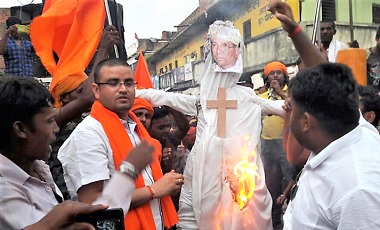
Image from a February 19 World Wide Monitor story: ‘2017 one of the most traumatic years for Indian Christians.’ Photo: Catholic Bishops’ Conference of India.
“Christianity faces a global crisis of persecution, as believers in many places around the world suffer harassment, marginalization and violence – in more countries and under more diverse settings than any other faith group.”
That is the claim of Allen Hertzke, co-editor of the impressive two-volume Christianity and Freedom, published by Cambridge University Press recently.
Volume 1 considers ‘historical perspectives’:
Leading historians uncover the unappreciated role of Christianity in the development of basic human rights and freedoms from antiquity through today. These include radical notions of dignity and equality, religious freedom, liberty of conscience, limited government, consent of the governed, economic liberty, autonomous civil society and church-state separation, as well as more recent advances in democracy, human rights and human development.
Volume 2 looks at ‘contemporary perspectives.’ Co-editors Allen Hertzke and Timothy Shah have assembled an impressive team of scholars to address 16 topics, from general ones such as ‘Persecution in the Context of Religious and Christian Demography, 1970 – 2020 (Todd Johnson) and ‘Patterns and Purposes of Contemporary Anti-Christian Persecution’ (Paul Marshall) to coverage of specific situations (India, China, Indonesia, Pakistan, Nigeria, Israel/Palestine, Egypt . . .) and broader issues such as ‘transnational Christian networks for human dignity.’ (Reg Reimer, who lives in the Fraser Valley, contributed a chapter on Vietnam.)
The whole book is full of valuable insights, but it would be worth the price based on the chapters by Marshall and Johnson alone.
Patterns and purposes
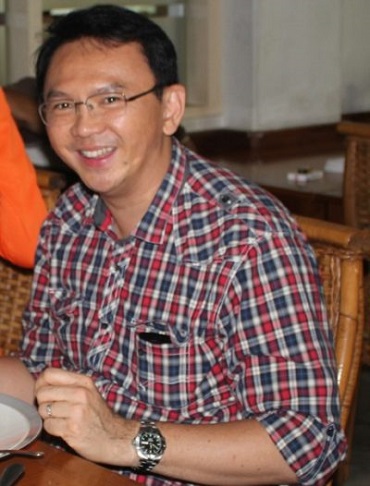
Former governor of Jakarta, Basuki Tjahaja Purnama (‘Ahok’), a Christian, was jailed for blasphemy; he made a final appeal February 27. Photo: Open Doors Ministries.
Paul Marshall states:
Currently, Christians are the most widely persecuted religious group in the world, suffering discrimination, harassment, repression and violence in approximately 133 countries, and, in some areas, particularly in the Muslim majority world, this is increasing. The persecution is also often underreported and downplayed.
There are currently four major patterns of anti-Christian persecution; while these do include all instances, they cover more than 90 percent of them. These patterns are:
- the self-professed Communist countries – China, Vietnam, Laos, North Korea and Cuba – where the state is the usual persecutor;
- South Asian religious nationalism – in India, Nepal, Sri Lanka and Bhutan – where reactionary Hindu and Buddhist elements attack religious minorities and persecution is primarily societal rather than state-directed, though states or local governments can be complicit;
- the Muslim majority world, where although it does not involve the most Christians, it is the site of the most widespread persecution and is the area where persecution is increasing;
- post-Communist, national security and other authoritarian states, including Burma, Ethiopia, Eritrea, Uzbekistan, Turkmenistan and Belarus.
Marshall points out that in traditional cultures characterized by a considerable degree of unity, Christians are often seen as a threat because they encourage free choice of belief:
The reasons for persecution are varied and do not constitute a unitary ‘war’ on Christians. But one common feature is that in the modern age, the traditional Christian belief that sacerdotum (church) and regnum (state) were two distinct bodies manifests itself practically in a denial that the state is all-encompassing or the ultimate arbiter of human life. Hence this belief is a foundation for social and political pluralism. Accordingly, Christian are often subject to persecution by those who have a monistic conception of the social order and the state . . .
Other factors in the persecution of Christians include the claim that Christians are foreigners, often coupled with opposition to conversion to Christianity, which is often seen as a threat to the political and social order.
Finally, the common Christian stress on new spiritual birth often challenges traditional orders in which social position is ascriptive and inherited from birth.
Marshall acknowledges that other religious minorities suffer grievous persecution and equally deserve protection, but states: “since Christians are the world’s most widely persecuted group, their situation deserves particular attention and action.”
Facts and figures
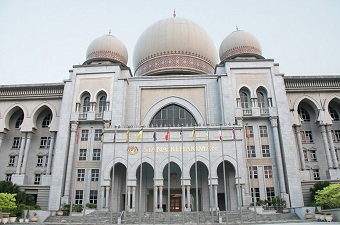
Malaysia’s highest court dismissed an appeal February 27 against four appellants who wanted to be formally recognized as Christians. World Watch Monitor photo.
Todd Johnson presents estimates of the number of Christians facing persecution around the world over the past 50 years.
In an article chock-full of statistics and tables, he follows the work done by Marshall in an earlier book (Persecuted, with Leah Gilbert and Nina Shea):
Christians are experiencing an upsurge in persecution around the world. Approximately 500 million Christians (22 percent of the global total) in 2010 were living in 46 countries that have been identified by Paul Marshall [in the categories mentioned above] as states where Christians are subject to persecution.
While a higher percentage of Christians lived in those 46 countries in 1970 (26 percent), by 2000 this percentage had fallen to just above 20 percent.
By 2020 this is expected to rise to 600 million people, or 23.5 percent of all Christians.
This shows that persecution, measured in terms of the 46 countries in the taxonomy, is affecting an increasing proportion of the Christian community from the period 2000 to 2020.
Western secularism
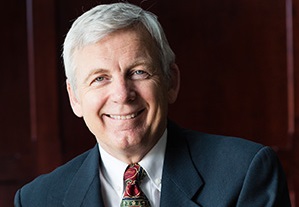
Last fall, TWU president Bob Kuhn stated before the House of Commons committee studying racism and discrimination that Trinity Western is facing “prejudice and systemic religious discrimination.”
Both Marshall and Johnson point out that there are increasing restrictions on religious freedoms in the West caused by newer forms of secularism. Though these fall short of persecution, they are not insignificant. Marshall says:
[T]he state of religious freedom in these regions [Western Europe, North America and Australia] is worsening . . . In much of the Western world, the concept of the secular, a term derived from Christian theology, has transformed from the idea of a nonconfessional state and opposition to religious discrimination to the idea that religion should be excluded from public life itself, including societal life . . .
In Canada, we are facing several such situations right now, including:
- opposition to Trinity Western University’s plan to operate a law school
- imposition of attestation requirements for Canada Summer Jobs grants
- pressure on faith groups regarding medical assistance in dying (MAiD)
As Paul Schratz said last year in Free speech is under threat in Canada:
Unfortunately, all is not well for the state of free speech in Canada. As hate speech laws expand and censorship of unacceptable opinions grows, the human fallout is troubling. The sentence for having an unpopular opinion these days ranges from public shaming to loss of employment.
Our family is suffering
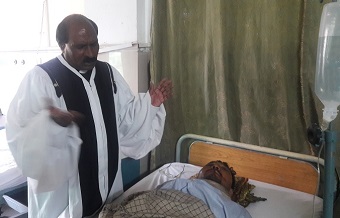
Pastor Emmanuel Khokhar prays for Sajid Masih, a Pakistan blasphemy suspect who says he jumped from the fourth floor to escape a forced sex act February 23. World Watch Monitor photo.
Of course, the situation in Canada pales beside those faced by our brothers and sisters in many parts of the world. These recent headlines merely skim the surface:
- Lawyer’s death at Chinese military hospital raises questions
- Armed gangs wipe out 15 villages in mass Christian slaughter in Nigeria
- Former Jakarta governor Ahok to appeal blasphemy sentence
As noted in Christianity and Freedom, persecution of Christians is very much under-reported, but there is so much of it that some incidents do make the headlines in secular publications.
Amnesty International released its 2017/2018 report February 22. The 409-page document struck me as being quite understated about ill treatment of Christians, but World Watch Monitor – which provides reliable daily reports on “the story of Christians around the world under pressure for their faith” – put a positive spin on the report in their February 23 assessment, Amnesty: ‘Discrimination rife in all regions of the world . . . with deadly consequences‘:
Amnesty’s report includes several references to the difficulties experienced by Christians in various countries, especially when they are the minority. A few examples include:
Cuba
“In Cuba, large numbers of human rights defenders and political activists continued to be harassed, intimidated, dismissed from state employment and arbitrarily detained to silence criticism. Online and offline censorship undermined advances in education. Prisoners of conscience included the leader of the pro-democracy Christian Liberation Movement, Eduardo Cardet Concepción, who was jailed for three years for publicly criticizing former president Fidel Castro.”
Iran
“The right to change or renounce religious beliefs continued to be violated. Christian converts received harsh prison sentences, which ranged from 10 to 15 years in several cases. Raids on house churches continued.”
For the full article, which includes brief focuses on Nigeria, Pakistan, Philippines and Sri Lanka, go here.
Christianity and Freedom: a rich collection
Co-editor Allen Hertzke describes the three main themes of Christianity and Freedom:
- Diversity: “Nested among Dalit women in India, business networks of Southeast Asia, teeming Chinese cities, African villages, Latin American favelas or refugee camps in Turkey, [Christianity] spans the globe and adapts to diverse cultural and political environments.
- Freedom: “Careful field research demonstrates the outsized role of Christian communities in defending religious freedom and human rights, empowering the marginalized and providing education, health care and social services.”
- Ecumenism: “As dramatic assaults against Christians have unfolded [in the Middle East], we discern growing signs of profound ecumenism and solidarity. . . . [T]he shocking beheading of the Egyptian Copts in Libya aroused widespread pledges of Christian solidarity, led by Pope Francis’s heartfelt prayers for ‘our brother Copts’ and all others of Christianity’s disparate branches whose ‘blood is mixed’ in martyrdom. This consciousness of an ecumenism of blood, indeed, may usher a new chapter in the history of Christianity, one that transcends division and offers a more cohesive vision of the faith to the world. we pray this volume will contribute to that worthy aim.
Primers for action
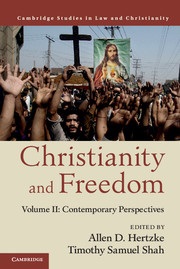 In a positive review of Christianity and Freedom, Vol. II in the Journal of Church & State (Oxford Academic), Nimi Wariboko said:
In a positive review of Christianity and Freedom, Vol. II in the Journal of Church & State (Oxford Academic), Nimi Wariboko said:
This book also aspires to bring both scholarly and popular attention to the persecution of Christians in the hands of these world religions. It provides sober, hardboiled facts about the persecution of Christians worldwide to accomplish three objectives.
First, it works to engage the reader’s rational thinking process and help her deliberate on what needs to be done to ensure religious freedom not only to Christians, but also to non-Christians in pluralistic societies.
Second, its language and subtext are calculated to arouse Christians (especially those in the West) to begin to resist persecution of fellow Christians anywhere in the world.
Third, it boldly offers the Christian tradition as the best guarantor (facilitator) of religious freedom and human flourishing throughout the world.
Both volumes of Christianity and Freedom (especially the second) should be in many pastor’s and church libraries – for the reasons enumerated in Warikobo’s review.
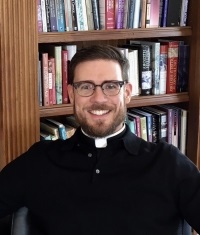
Andrew Bennett
An event coming up March 9 at Trinity Western University will tie in perfectly with the themes in Christianity and Freedom:
Dr. Andrew Bennett’s lecture is titled The Christian and the Public Square: Truth and the Messy Business of Citizenship and explores religious liberty in Canada today within the context of how Christian citizens relate to government and the public square.
Bennett served as Canada’s first ambassador for religious liberty and is widely recognized as an authority on religious liberty questions.
